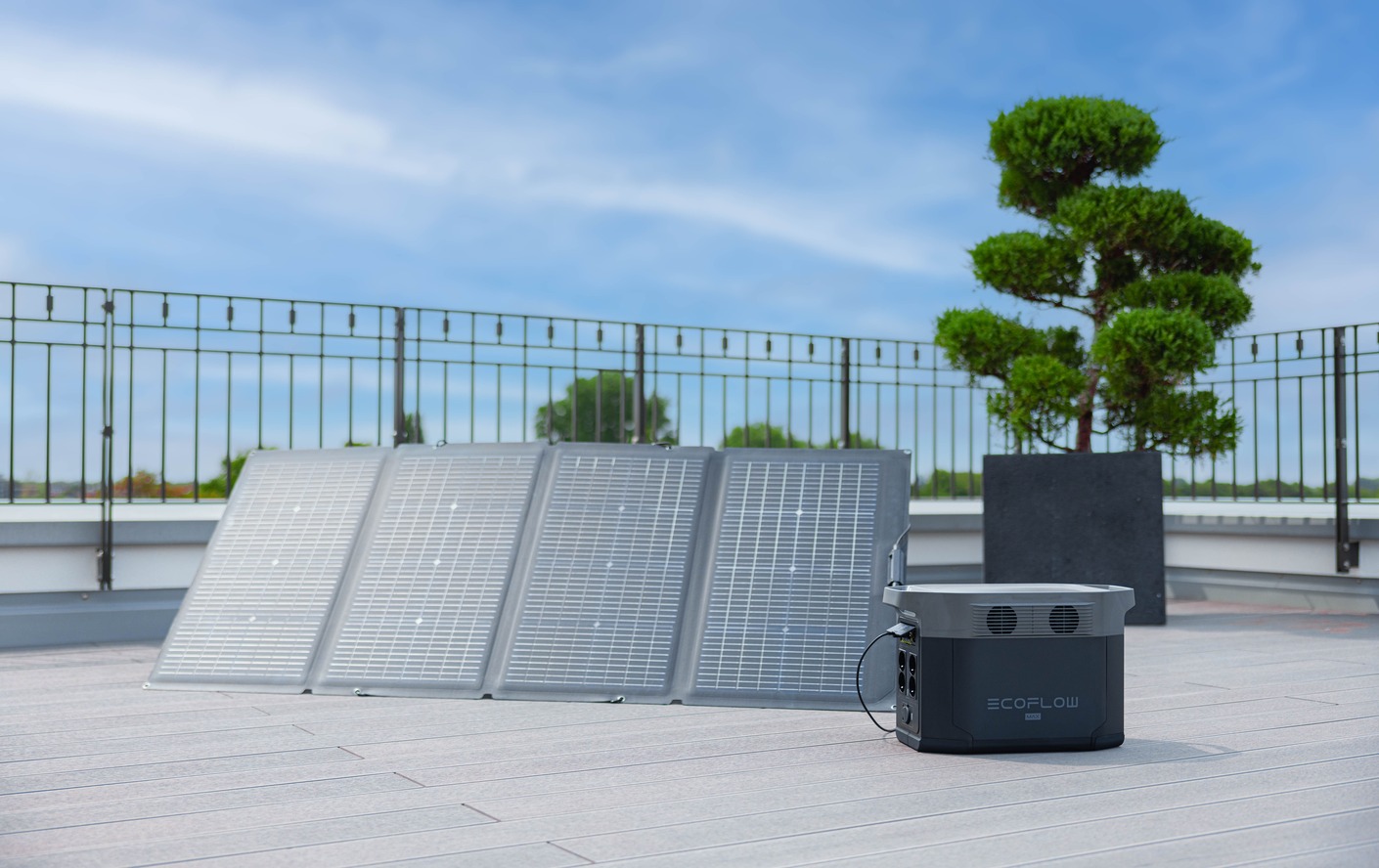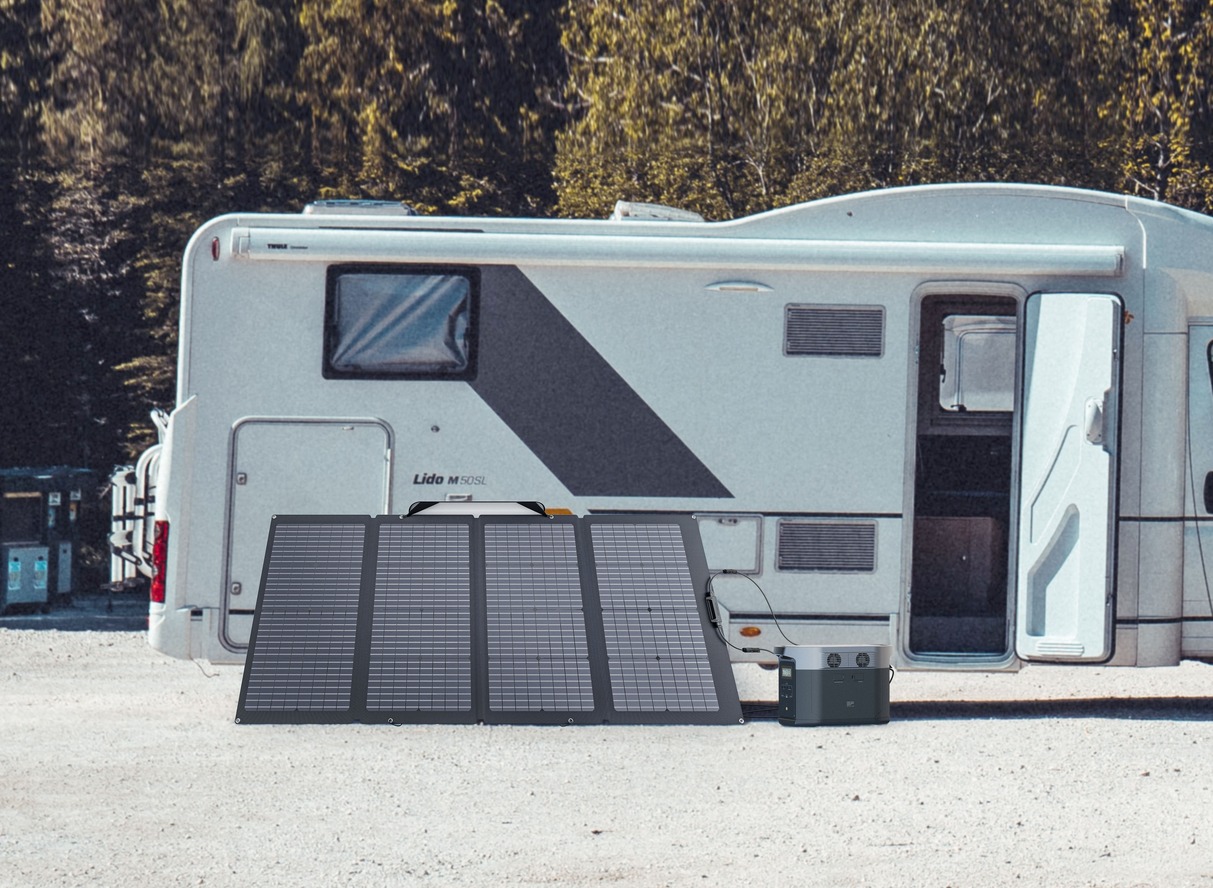Common Mistakes to Avoid When Installing Solar Panels
- Don’t Neglect Site Evaluation
- Don’t Select Panels Only on the Basis of Price
- Don’t Ignore Local Regulations and Permits
- Don’t Misjudge System Size and Energy Needs
- Don’t Skip Expert Installation
- Don’t Forget About Maintenance and Monitoring
- Don’t Neglect Your Options for Energy Storage
- Don’t Forget Installer Credentials and Warranties
- How EcoFlow Prevents Typical Errors in Solar Installation
- In Summary: Install Wisely and Maintain Power
- Frequently Asked Questions
One of the best ways to lower energy costs and improve sustainability is to install solar panels. But there are some difficulties with the process. Knowing potential pitfalls can help you save time, money, and frustration when planning a ground-mounted array or installing a rooftop system. Here’s a helpful look at the most typical errors that businesses and homeowners make when installing solar panels, along with tips for avoiding them.
Don’t Neglect Site Evaluation
Ignoring a thorough site assessment is one of the most common errors. Not every property or roof is a good fit for solar power. The efficiency of the system can be greatly impacted by elements such as roof orientation, shade from surrounding trees or buildings, and roof strength.
It’s crucial to consider the following factors before installing solar panels:
- Your roof’s orientation and angle (south-facing is usually ideal in the Northern Hemisphere)
- The availability of shade throughout the day and seasons
- Roof age and structural soundness
A qualified site evaluation can spot possible problems and suggest fixes, like pruning trees or strengthening roof structures.


Don’t Select Panels Only on the Basis of Price
Cost is a crucial factor, but choosing panels just because they’re the least expensive option frequently results in disappointment. Cheaper panels might have shorter warranties, be less durable, or be less efficient. Over time, this may lead to decreased performance and increased maintenance expenses.
Rather, assess panels according to their efficiency ratings, warranty terms, manufacturer reputation, and suitability for your particular energy requirements. Long-term benefits of selecting a slightly better panel include increased energy output and dependability.
Don’t Ignore Local Regulations and Permits
Every region has specific regulations, permits, and utility requirements for installing solar panels. Skipping these steps or assuming your contractor will handle them can lead to delays, fines, or even forced removal of the system.
Before installation:
- Check local building codes and zoning laws
- Consult your local government to confirm permit requirements, and speak with your utility company to understand interconnection requirements
Additionally, some places provide rebates or incentives for solar installations, though these frequently come with requirements for particular paperwork or approval procedures.
Don’t Misjudge System Size and Energy Needs
Undersizing or oversizing the solar system is another frequent error. Systems that are too small may not be able to meet the energy needs of the home, which lowers savings. Oversized systems, while generating more power, can involve higher upfront costs without proportionate returns, especially in areas with limited net metering or feed-in tariffs.
The ideal system size can be found with the aid of a thorough energy audit, which examines your historical electricity consumption and takes future requirements (like charging for electric vehicles) into account. Numerous installers are able to offer simulations that display projected output and savings according to system size and orientation.


Don’t Skip Expert Installation
Solar systems require precise mounting, intricate electrical connections, and code compliance, despite the allure of do-it-yourself installation. Errors may lead to defective panels, safety risks, or void warranties.
Employing qualified experts guarantees that:
- Electrical systems are connected securely and in accordance with local codes
- Panels are mounted firmly and positioned for optimal efficiency
- The system seamlessly integrates with the utility grid and electrical infrastructure of your home
Don’t Forget About Maintenance and Monitoring
Solar panels are low-maintenance, but not maintenance-free. Dust, debris, and bird droppings can reduce panel efficiency, while electrical components may need occasional inspections. Many homeowners neglect to plan for this upkeep or fail to monitor system performance.
Setting up routine inspections to verify system connections and panel cleanliness is a good idea.
- To track system performance and spot possible problems early, use monitoring software, which is frequently supplied by inverter manufacturers
- Set up reminders for upkeep and cleaning, particularly in places with a lot of dust or pollutants
Don’t Neglect Your Options for Energy Storage
While grid-tied solar systems work well for many homeowners, not considering energy storage solutions can limit the benefits of installing solar panels. With batteries, you can store extra electricity produced during the day for use during periods of high demand or when the grid is unavailable.
Without storage, you may export surplus electricity to the grid for minimal compensation, especially if local policies reduce net metering rates. Assess your options for integrating a battery system, such as EcoFlow’s DELTA series, which pairs efficiently with solar arrays and offers backup power during emergencies.
Don’t Forget Installer Credentials and Warranties
Just as crucial as picking high-quality panels is picking the correct installer and being aware of warranty terms. Without checking certifications or reviews, some homeowners choose to work with inexperienced contractors, running the risk of poor installation and decreased system performance.
To avoid this:
- Select an installer who is licensed, experienced, and has a good track record
- Examine product and installation warranties to make sure they include at least 10–25 years for panels and 10-25 years for inverters
- Verify if the installer provides monitoring or post-installation support
How EcoFlow Prevents Typical Errors in Solar Installation
EcoFlow’s portable solutions are made to avoid the problems that many solar installations encounter, such as inadequate maintenance plans, inefficient setups, and poor system sizing.
- Accurate System Sizing: EcoFlow’s modular design matches actual energy needs by matching DELTA power stations with high-efficiency panels
- Easy Installation: Plug-and-play functionality avoids complex wiring and mounting issues
- Dependable Backup and Storage: During blackouts, integrated storage guarantees power availability
- Low Maintenance: Sturdy, foldable panels require little maintenance and are convenient to store
EcoFlow tackles common solar errors head-on by fusing performance and flexibility.
In Summary: Install Wisely and Maintain Power
Installing solar panels—whether for your home or on the go—requires careful planning and attention to detail. You can optimize system performance, cut expenses, and fully benefit from solar power by avoiding these typical blunders. Reliable, affordable energy for years to come is ensured by a careful approach today.
Frequently Asked Questions
Q1: How can I determine the appropriate system size when installing solar panels?
Start by reviewing your last year’s electrical consumption, considering any expected changes including adding more appliances or charging an electric car. A qualified installer can use this data to model the perfect system size based on roof orientation and shading.
Q2: Could I install solar panels myself or should I call an expert?
While do-it-yourself installation is possible, structural evaluations and electrical work are involved. Using a qualified expert ensures that panels follow codes, are installed securely, and operate as intended.
Q3: Regarding solar panel installation, what are the most common permit issues?
Typical issues include missing documentation, non-local code compliance, and delayed utility approval. A knowledgeable installer aware of local legislation can help to ensure a seamless operation of the process.
Q4: Does installation of a solar panel call for batteries?
Not necessarily. But adding battery storage will maximize the benefits by storing extra energy for use during blackouts or nighttime. Usually with lower compensation rates, extra energy is returned to the grid in the lack of storage.
Q5: How often should I check and clean my solar panels?
Generally speaking, solar panels do not require much maintenance. Cleaning every few months and looking for damage—especially in dusty or pollen-heavy environments—helps to preserve efficiency. To shield them from inclement weather, portable panels, such as those made by EcoFlow, can be folded up and stored.
Solar Panels
For press requests or interview opportunities, reach out to our media team
media.na@ecoflow.com